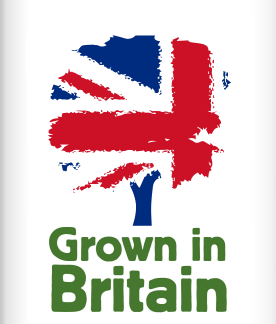Iain McIlwee, BWF CEO
 This cliché has a new meaning for me and Grown in Britain has caused me to stop and think – I very much hope and will do all I can to ensure that it has the same effect on others.
This cliché has a new meaning for me and Grown in Britain has caused me to stop and think – I very much hope and will do all I can to ensure that it has the same effect on others.
It was sunny this weekend so I headed to the woods. Nowadays, much of my life centres on wood – I see pallet loads of timber, beautifully crafted joinery products almost daily and, if I am not looking at the real thing, it is photos and brochures of joinery products that fill my email and in-tray and adorn the walls of my office –I find it hard to walk past a window or door or up a staircase without giving it the quick once over.
This in itself is not strange, I am after all Chief Executive of the British Woodworking Federation – I had prepared myself for this eventuality when I took the job and frankly it isn’t a hardship – I work with some of the most gifted manufacturers in the UK producing products that grace our homes, add value to our economy and at times (particularly in the case of fire doors), save our lives.
I spend a lot of time thinking about wood! The strange thing is that to escape the stresses and strains of working life, I turn my smart-phone off (well put it on silent!) and head to the woods, walking with the family. I don’t at these times think about the tree as timber, just a great backdrop for us to play and unwind as a family (the only thing disturbing this picture postcard family scene is the need every once in a while to explain to my son that tired legs are seldom fatal!)
 During my walk last weekend and with Grown in Britain in my thoughts, my mind did wonder to how fragmented we can be as a timber industry – how we let people continue to foster the misconception that harvesting timber is bad for the woods and how we don’t join up as effectively as we should to support our respective challenges and deliver a shared vision of greater use and appreciation of forests and timber.
During my walk last weekend and with Grown in Britain in my thoughts, my mind did wonder to how fragmented we can be as a timber industry – how we let people continue to foster the misconception that harvesting timber is bad for the woods and how we don’t join up as effectively as we should to support our respective challenges and deliver a shared vision of greater use and appreciation of forests and timber.
The story of timber starts with the evolution of man, it has been there throughout our history, building our homes, our shields and ships, providing shelter and protection and giving us the means to explore the world. Yet somehow today our connection with the trees and woods is not as strong, the story has become confused amidst illegal logging and the business behind the science of sustainability. The timber industry knows a lot about wood, innovating with wood and making fabulous stuff from wood. However, we are not that good at telling our story, linking up to help people to understand our supply chain, nor sharing our vision for the future. This story is a key piece of the jigsaw that we must assemble if we are really going to get to grips with the global warming agenda – Grown in Britain can help us to tell it.
So when I returned to work on Monday it was with renewed vigour – we need to work harder, to shout louder, to extend our influence as an industry. I watched a lecture this week and was heartened, the voices are getting louder and the cacophony is getting greater. Michael Green, the renowned American architect, in one of the great TED talks, described timber as the most important “new material” for the construction sector, an integral part of the future of construction – he regales the key facts and figures in this inspiring talk. This story is our story and is intrinsically entwined with the history of our great nation and I am confident a very strong part of our future.
I can see the wood for the trees and I very much hope as a sector, through Grown in Britain, we can start to help create this vision in others.